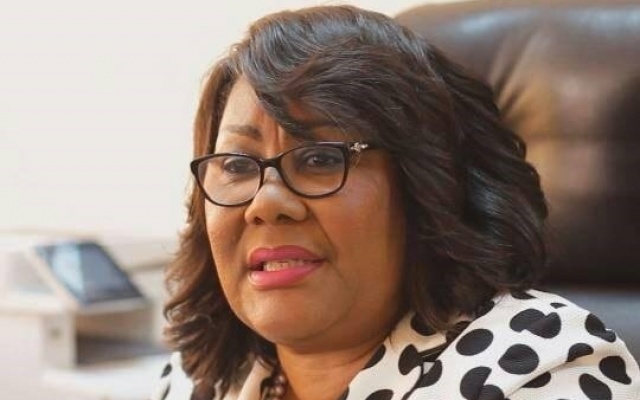Mrs Jemima Oware, the Register-General, on Tuesday said the Department is set to deploy a new Central Beneficial Ownership Register for all companies in Ghana to disclose the identities of owners to help fight corruption.
Mrs Oware told the Ghana News Agency in an interview that the exercise, scheduled to start in October 2020, would first assimilate the extractive industry and other high-risk sectors like banks and other financial institutions.
Beneficial Ownership (BO), a term in domestic and international commercial law, refers to the “natural persons” who exercise significant influence over and receive profits from a company even though they are not its legal owners.
“Some people can assign a ‘nominee’ in relation to their shareholding or directorship position at the board and they would be at the back end controlling affairs, they would have a legal arrangement with such persons that we would not be privy to, but things have changed now,” Mrs Oware said.
She explained that the lack of information about who owned and controlled businesses incorporated in Ghana had created a “dangerous and widening gap” in the country’s fight against corruption, money laundering, terrorism financing and other forms of financial crimes.
Mrs Oware said none of the country’s laws provided for disclosure of beneficial ownership, until last year, “and this made it easier for companies in the past to hide the identities of their owners if necessary”.
She said following the release of the Panama Papers, which reveal the names of wealthy and well-known individuals who have had offshore dealings through companies, and global efforts to address issues related to anti-corruption and tax evasion, the Government came under pressure to act on beneficial ownership disclosure, hence the passage of the new Companies Act, 2019, (Act 992).
“The Act has enhanced the ease of doing business in Ghana by simplifying the process of company registration to ensure that Ghana, as the gateway to Africa, becomes a competitive and transparent investment destination,” she noted.
Mrs Oware said the new Business Ownership would address four key issues, with the first being the reinforcing of underlying legal and regulatory requirements for disclosure of different types of ownership across various legal vehicles.
Second is the application of common standards such as the Beneficial Ownership Data Standard and linking ownership information with other policy areas to help track money and assets across sectors and jurisdictions.
Third is the opening of beneficial ownership data, coupled with strong verification systems to ensure that data is accurate and useable and fourth is to open formal and informal channels for accountability to enable citizens to actively use ownership data to uncover networks of corruption.
Mrs Oware said from next month whoever wished to register a company to operate in the extractive industry should visit www.rgd.gov.gh and download the Beneficial Ownership form and provide the answers required.
“No thresholds exist for shareholders and directors of extractive industry players operating in Ghana. Whether you own one per cent or two per cent, that information has to be disclosed.
“However, if it’s a foreign company within the extractives industry operating in Ghana, that shareholder must have at least five percent before the disclosure is made on the BO register.”
The Registrar-General said government remained committed to meeting a number of international obligations regarding the implementation of the Beneficial Ownership regime.
Government would work through partnerships with the Financial Intelligence Centre, the Ghana Extractive Industries Transparency Initiative, and Financial Action Taskforce to help meet the deadline for various beneficial ownership requirements.
She emphasised that all registers must list the Ultimate Beneficial Owner (UBO) and include the same basic information: name, month of birth, nationality, country of residence, and nature/size of the interest held in the companies or entities and the Tax Identification Numbers (TIN).
In the mining, oil, and gas sectors, the implementation of the BO transparency disclosures are taking place through the Ghana Extractives Industries Transparency Initiative (GHEITI) with the support of the Registrar-General.
“This information will then be made publicly available through EITI country reports and/or national registries,” she noted.




